
 Joachim Kohn is a leader in biomaterials science and widely known for the development of tyrosine-derived, resorbable polymers, one of which is now used in an FDA-approved medical device. Kohn's current research efforts focus on the development of a new "discovery paradigm" for revolutionary biomaterials using combinatorial and computational methods to optimize the composition and properties of biomaterials for specific applications, particularly tissue engineering and drug delivery. As a first demonstration of the utility of this approach, Kohn led a team of scientists who discovered an optimized polymer for use in a fully degradable cardiovascular stent which has been tested in clinical trials in Germany and Brazil. Additional clinical trials are planned. Kohn's combinatorial biomaterials design approach was also used for the development of optimized polymers by Lux Biosciences (ophthalmic applications) and by Trident Biomedical (orthopedic applications).
Joachim Kohn is a leader in biomaterials science and widely known for the development of tyrosine-derived, resorbable polymers, one of which is now used in an FDA-approved medical device. Kohn's current research efforts focus on the development of a new "discovery paradigm" for revolutionary biomaterials using combinatorial and computational methods to optimize the composition and properties of biomaterials for specific applications, particularly tissue engineering and drug delivery. As a first demonstration of the utility of this approach, Kohn led a team of scientists who discovered an optimized polymer for use in a fully degradable cardiovascular stent which has been tested in clinical trials in Germany and Brazil. Additional clinical trials are planned. Kohn's combinatorial biomaterials design approach was also used for the development of optimized polymers by Lux Biosciences (ophthalmic applications) and by Trident Biomedical (orthopedic applications).
 Yi Arnold, PhD, is currently a senior scientist at Osiris Therapeutics, Inc. She obtained her PhD in Biomedical Engineering from City College of New York and followed by a postdoctoral training at Yale Medical School. After that, she joined the Laboratory for Stem Cells and Tissue Engineering at Columbia University and performed research on cardiac tissue engineering. Before joining Osiris, she worked as a senior scientist at Kinetic Concepts, Inc.
Yi Arnold, PhD, is currently a senior scientist at Osiris Therapeutics, Inc. She obtained her PhD in Biomedical Engineering from City College of New York and followed by a postdoctoral training at Yale Medical School. After that, she joined the Laboratory for Stem Cells and Tissue Engineering at Columbia University and performed research on cardiac tissue engineering. Before joining Osiris, she worked as a senior scientist at Kinetic Concepts, Inc.
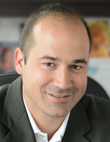 Matthew Becker is a Professor in the Departments of Polymer Science and Biomedical Engineering at The University of Akron. His research group focuses on synthesizing highly functional macromolecular materials for medical device and regenerative medicine applications. He is the Director the industrially-focused Akron Functional Materials Center and also leads the Biomaterials efforts of the Austen Bioinnovation Institute in Akron. Prior to joining UA, Dr. Becker was a project leader and NRC postdoctoral fellow in the Polymers Division of the National Institute of Standards and Technology (NIST). He also led the biomaterials efforts of NIST Combinatorial Methods Center and facilitated Polymers Division interactions with the research divisions of the U.S. FDA. Dr. Becker received his PhD in Organic Chemistry in 2003 from Washington University in St. Louis under the supervision of Professor Karen L. Wooley where he was an NIH Chemistry-Biology Interface Training Fellow. He received his BS in Chemistry in 1998 from Northwest Missouri State University.
Matthew Becker is a Professor in the Departments of Polymer Science and Biomedical Engineering at The University of Akron. His research group focuses on synthesizing highly functional macromolecular materials for medical device and regenerative medicine applications. He is the Director the industrially-focused Akron Functional Materials Center and also leads the Biomaterials efforts of the Austen Bioinnovation Institute in Akron. Prior to joining UA, Dr. Becker was a project leader and NRC postdoctoral fellow in the Polymers Division of the National Institute of Standards and Technology (NIST). He also led the biomaterials efforts of NIST Combinatorial Methods Center and facilitated Polymers Division interactions with the research divisions of the U.S. FDA. Dr. Becker received his PhD in Organic Chemistry in 2003 from Washington University in St. Louis under the supervision of Professor Karen L. Wooley where he was an NIH Chemistry-Biology Interface Training Fellow. He received his BS in Chemistry in 1998 from Northwest Missouri State University.
 Scott P. Bruder, MD, PhD, is an insightful and energetic healthcare leader with a 20-plus year history of bridging basic science, clinical medicine, and industrial development expertise to deliver innovative, commercially successful products that improve patients’ lives around the world. Experience in medical devices, diagnostics, biotechnology, and life science research tools fortify an expansive analytical skill set for this resilient, poised and influential C-Suite executive. An award-winning scientist and clinician, equally comfortable in the laboratory, at the lectern, in the Boardroom or on Capitol Hill, he delivers impactful results by inspiring multi-disciplinary teams to be collaborative, rigorous and decisive. This seasoned Senior Executive, University Professor, and FDA Advisory Committee Member provides a unique bench-to-bedside perspective on unmet needs, development strategy and the path to commercialization. An avid long-distance runner, jazz pianist, devoted husband and dedicated father, his core beliefs are based on the principles of passion, commitment and discipline.
Scott P. Bruder, MD, PhD, is an insightful and energetic healthcare leader with a 20-plus year history of bridging basic science, clinical medicine, and industrial development expertise to deliver innovative, commercially successful products that improve patients’ lives around the world. Experience in medical devices, diagnostics, biotechnology, and life science research tools fortify an expansive analytical skill set for this resilient, poised and influential C-Suite executive. An award-winning scientist and clinician, equally comfortable in the laboratory, at the lectern, in the Boardroom or on Capitol Hill, he delivers impactful results by inspiring multi-disciplinary teams to be collaborative, rigorous and decisive. This seasoned Senior Executive, University Professor, and FDA Advisory Committee Member provides a unique bench-to-bedside perspective on unmet needs, development strategy and the path to commercialization. An avid long-distance runner, jazz pianist, devoted husband and dedicated father, his core beliefs are based on the principles of passion, commitment and discipline.
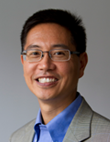 Christopher S. Chen is a Professor of Biomedical Engineering at Boston University and the Harvard Wyss Institute for Biologically Inspired Engineering, has been instrumental in developing engineered cellular microenvironments to understand how cells build tissues. He serves as a fellow for the American Institute for Medical and Biological Engineering, member of the Faculty of 1000, Editorial Board for Science Translational Medicine, Annuals Reviews of Cell and Developmental Biology, and Developmental Cell. He received his Ph.D. from M.I.T., and M.D. from Harvard Medical School. He was founding director of the Penn Center for Engineering Cells and Regeneration before his current appointment.
Christopher S. Chen is a Professor of Biomedical Engineering at Boston University and the Harvard Wyss Institute for Biologically Inspired Engineering, has been instrumental in developing engineered cellular microenvironments to understand how cells build tissues. He serves as a fellow for the American Institute for Medical and Biological Engineering, member of the Faculty of 1000, Editorial Board for Science Translational Medicine, Annuals Reviews of Cell and Developmental Biology, and Developmental Cell. He received his Ph.D. from M.I.T., and M.D. from Harvard Medical School. He was founding director of the Penn Center for Engineering Cells and Regeneration before his current appointment.
 Marcus Cicerone is a Project Leader in the Polymers Division of the National Institute of Standards and Technology. He received his Ph.D. in Physical Chemistry at the University of Wisconson-Madison. Over the past 9 years he has led a team of NIST staff and postdocs to many pioneering accomplishments that have laid the foundation for high-speed spectroscopic imaging using broadband coherent Raman scattering. In 2004, his was the first group to demonstrate broadband coherent anti-Stokes Raman scattering (BCARS) microscopy. Since then, he has introduced numerous hardware and software improvements to the methodology. Among these, his group has engineered continuum laser pulses that were far superior for BCARS to those previously available and also devised a pulse-shaping approach that allowed us to obtain background-free (pure Raman) signal. He later invented a mathematical approach based on a Kramers-Kronig transform for retrieving the pure Raman spectrum directly from the raw CARS signal, making his the first group to obtain quantitative vibrational fingerprint spectra using coherent Raman methods in biological tissues or cells, and showing that BCARS was then 50-fold faster than spontaneous Raman imaging. During the same period Dr. Cicerone has directed a multi-PI R01 grant for stabilizing proteins in biopharmaceutical and drug delivery applications.
Marcus Cicerone is a Project Leader in the Polymers Division of the National Institute of Standards and Technology. He received his Ph.D. in Physical Chemistry at the University of Wisconson-Madison. Over the past 9 years he has led a team of NIST staff and postdocs to many pioneering accomplishments that have laid the foundation for high-speed spectroscopic imaging using broadband coherent Raman scattering. In 2004, his was the first group to demonstrate broadband coherent anti-Stokes Raman scattering (BCARS) microscopy. Since then, he has introduced numerous hardware and software improvements to the methodology. Among these, his group has engineered continuum laser pulses that were far superior for BCARS to those previously available and also devised a pulse-shaping approach that allowed us to obtain background-free (pure Raman) signal. He later invented a mathematical approach based on a Kramers-Kronig transform for retrieving the pure Raman spectrum directly from the raw CARS signal, making his the first group to obtain quantitative vibrational fingerprint spectra using coherent Raman methods in biological tissues or cells, and showing that BCARS was then 50-fold faster than spontaneous Raman imaging. During the same period Dr. Cicerone has directed a multi-PI R01 grant for stabilizing proteins in biopharmaceutical and drug delivery applications.
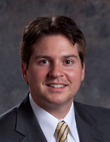 D. Kacy Cullen is an Assistant Professor of Neurosurgery at the University of Pennsylvania and the Philadelphia VA Medical Center (http://www.med.upenn.edu/cullenlab/). He received a Ph.D. in Biomedical Engineering from the Georgia Institute of Technology in 2005, followed by postdoctoral fellowships in Neuroengineering at Georgia Tech and at the Center for Brain Injury & Repair at Penn. Dr. Cullen’s research program operates at the intersection of Neural Engineering and Neurotrauma. He is a leader in neural tissue engineering repair strategies, having pioneered novel “living scaffolds” for neuroregeneration, micro-tissue engineering to restore brain circuitry and biohybrid neuroprosthetic interfaces.
D. Kacy Cullen is an Assistant Professor of Neurosurgery at the University of Pennsylvania and the Philadelphia VA Medical Center (http://www.med.upenn.edu/cullenlab/). He received a Ph.D. in Biomedical Engineering from the Georgia Institute of Technology in 2005, followed by postdoctoral fellowships in Neuroengineering at Georgia Tech and at the Center for Brain Injury & Repair at Penn. Dr. Cullen’s research program operates at the intersection of Neural Engineering and Neurotrauma. He is a leader in neural tissue engineering repair strategies, having pioneered novel “living scaffolds” for neuroregeneration, micro-tissue engineering to restore brain circuitry and biohybrid neuroprosthetic interfaces.
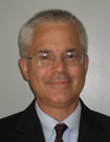 Mark A. Davies received his B.A. in Chemistry from New York University. His Ph.D. thesis project topic was Raman Optical Activity, directed by Prof. Max Diem at the City University of New York. There followed postdoctoral work on infrared spectroscopic studies of acyl chain conformational disorder in lipids with Prof. Richard Mendelsohn at Rutgers University, work which was continued as a Research Assistant Professor in the Biochemistry Department at Georgetown University School of Medicine. Since then, Dr. Davies has concentrated on in vivo measurement of the efficacy of skin care products and cosmetics at Unilever, L’Oreal, and, presently, at Ashland Specialty Ingredients.
Mark A. Davies received his B.A. in Chemistry from New York University. His Ph.D. thesis project topic was Raman Optical Activity, directed by Prof. Max Diem at the City University of New York. There followed postdoctoral work on infrared spectroscopic studies of acyl chain conformational disorder in lipids with Prof. Richard Mendelsohn at Rutgers University, work which was continued as a Research Assistant Professor in the Biochemistry Department at Georgetown University School of Medicine. Since then, Dr. Davies has concentrated on in vivo measurement of the efficacy of skin care products and cosmetics at Unilever, L’Oreal, and, presently, at Ashland Specialty Ingredients.
 Adda Gogoris practice focuses on global patent procurement, patent portfolio management, and related counseling. She has assisted numerous enterprises in the development and maintenance of patent strategies in the areas of pharmaceuticals (including new molecular entities), biomolecules, and diagnostic systems, and advises on Hatch-Waxman issues such as patent term extension, Orange Book listing and Paragraph IV challenges. She also has considerable experience in IP due diligence investigations and in agreement drafting and negotiation. Adda’s scientific experience includes organic molecules and synthetic pathways (in areas such as antihypertensives, lower urinary tract modulators, microtubulin inhibitors, protease inhibitors, ion channel modulators and CNS drugs); drug delivery systems, complex protein structure and architecture, cellular signaling, and multiplex assay systems. In addition to her professional practice, Adda also writes and speaks frequently in the U.S. and abroad on various intellectual property topics. Since 2006, she has co-chaired an annual three-day seminar and clinic for the Practicing Law Institute.
Adda Gogoris practice focuses on global patent procurement, patent portfolio management, and related counseling. She has assisted numerous enterprises in the development and maintenance of patent strategies in the areas of pharmaceuticals (including new molecular entities), biomolecules, and diagnostic systems, and advises on Hatch-Waxman issues such as patent term extension, Orange Book listing and Paragraph IV challenges. She also has considerable experience in IP due diligence investigations and in agreement drafting and negotiation. Adda’s scientific experience includes organic molecules and synthetic pathways (in areas such as antihypertensives, lower urinary tract modulators, microtubulin inhibitors, protease inhibitors, ion channel modulators and CNS drugs); drug delivery systems, complex protein structure and architecture, cellular signaling, and multiplex assay systems. In addition to her professional practice, Adda also writes and speaks frequently in the U.S. and abroad on various intellectual property topics. Since 2006, she has co-chaired an annual three-day seminar and clinic for the Practicing Law Institute.
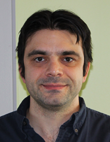 Murat Guvendiren received his Ph.D. in Materials Science and Engineering from Northwestern University with a minor in Bioengineering. He was a postdoc in Materials Science and Engineering and Bioengineering Departments at the University of Pennsylvania. He joined Rutgers as an Assistant Research Faculty at the New Jersey Center for Biomaterials. His research interests include development of hydrogels and polymeric biomaterials, biomimetic material design, surface patterning, cell-biomaterial interactions; in particular cellular interactions with dynamic and patterned materials. His current research focuses on applications of 3D printing technologies to biomaterials and medical devices, including design of novel ink formulations. The applications of his research range from fundamental understanding of stem cell behavior using materials-based approaches to fabricating intelligent scaffolds for regenerative medicine.
Murat Guvendiren received his Ph.D. in Materials Science and Engineering from Northwestern University with a minor in Bioengineering. He was a postdoc in Materials Science and Engineering and Bioengineering Departments at the University of Pennsylvania. He joined Rutgers as an Assistant Research Faculty at the New Jersey Center for Biomaterials. His research interests include development of hydrogels and polymeric biomaterials, biomimetic material design, surface patterning, cell-biomaterial interactions; in particular cellular interactions with dynamic and patterned materials. His current research focuses on applications of 3D printing technologies to biomaterials and medical devices, including design of novel ink formulations. The applications of his research range from fundamental understanding of stem cell behavior using materials-based approaches to fabricating intelligent scaffolds for regenerative medicine.
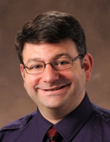 Frederick Halperin is Senior Scientist, Radiation Sterilization at J&J Sterility Assurance in Raritan, NJ, and is responsible for electron beam and gamma radiation processing, including sterilization dose setting, dose mapping, dosimetry systems, and maximum dose studies. He is the Particle Accelerator Safety Officer and assistant Radiation Safety Officer. Fred has contributed to publications on electron beam and gamma irradiation of polymers and pharmaceuticals. He is a member of the ASTM International Committee E61 on Radiation Processing, and is Co‐Chair of the Balloting Task Group.
Frederick Halperin is Senior Scientist, Radiation Sterilization at J&J Sterility Assurance in Raritan, NJ, and is responsible for electron beam and gamma radiation processing, including sterilization dose setting, dose mapping, dosimetry systems, and maximum dose studies. He is the Particle Accelerator Safety Officer and assistant Radiation Safety Officer. Fred has contributed to publications on electron beam and gamma irradiation of polymers and pharmaceuticals. He is a member of the ASTM International Committee E61 on Radiation Processing, and is Co‐Chair of the Balloting Task Group.
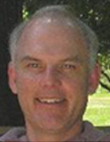 Scott Hanton is the General Manager for Intertek Allentown. Prior to his current role, he was the Laboratory Operations Manager and Chief Scientist in Allentown. He joined the Intertek network in 2010 as part of the outsourcing deal with Air Products & Chemicals. He earned a BS in Chemistry from Michigan State University and a PhD in Physical Chemistry from the University of Wisconsin-Madison. Scott has been active in polymer mass spectrometry and laboratory management.
Scott Hanton is the General Manager for Intertek Allentown. Prior to his current role, he was the Laboratory Operations Manager and Chief Scientist in Allentown. He joined the Intertek network in 2010 as part of the outsourcing deal with Air Products & Chemicals. He earned a BS in Chemistry from Michigan State University and a PhD in Physical Chemistry from the University of Wisconsin-Madison. Scott has been active in polymer mass spectrometry and laboratory management.
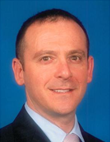 Hilton Kaplan is a Plastic, Reconstructive and Maxillofacial Surgeon, and a Biomedical Engineer. His research focuses on neurosciences (neural prosthetics and implantable man-machine interfaces), and tissue engineering (decellularized composite tissues for limb and face allotransplantation). Dr. Kaplan is Associate Director of the NJ Center for Biomaterials and a Research Associate Professor at Rutgers University; and an Adjunct Professor in Regulatory Science at the University of Southern California. Dr. Kaplan has held various clinical and research positions in industry, including Senior Medical Director at Allergan (Fortune 500 healthcare) and Vice President of Clinical Sciences at LifeCell (pioneered decellularizing dermis). He has a long history of passionately advocating for burn prevention and reconstruction (as a burn surgeon, a founding board member of the non-profit Grossman Burn Foundation, and the adoptive father of a spirited burn survivor), and for craniofacial reconstruction (as a founding director of the non-profit Look-at-Us Alliance for Craniofacial Differences).
Hilton Kaplan is a Plastic, Reconstructive and Maxillofacial Surgeon, and a Biomedical Engineer. His research focuses on neurosciences (neural prosthetics and implantable man-machine interfaces), and tissue engineering (decellularized composite tissues for limb and face allotransplantation). Dr. Kaplan is Associate Director of the NJ Center for Biomaterials and a Research Associate Professor at Rutgers University; and an Adjunct Professor in Regulatory Science at the University of Southern California. Dr. Kaplan has held various clinical and research positions in industry, including Senior Medical Director at Allergan (Fortune 500 healthcare) and Vice President of Clinical Sciences at LifeCell (pioneered decellularizing dermis). He has a long history of passionately advocating for burn prevention and reconstruction (as a burn surgeon, a founding board member of the non-profit Grossman Burn Foundation, and the adoptive father of a spirited burn survivor), and for craniofacial reconstruction (as a founding director of the non-profit Look-at-Us Alliance for Craniofacial Differences).
 Robert A. Latour obtained his Ph.D. in Bioengineering with an emphasis on biomaterials from the University of Pennsylvania in 1989. He then accepted a faculty position in the Department of Bioengineering at Clemson University, where he presently serves as the McQueen-Quattlebaum Professor of Bioengineering. Prof. Latour’s research focuses on the study of interactions between proteins and surfaces, with a specific focus on the development of molecular modeling and simulation methods to predict, visualize, and understand these interactions at the molecular level. He has published over a 100 book chapters and journal articles in the field of biomaterials.
Robert A. Latour obtained his Ph.D. in Bioengineering with an emphasis on biomaterials from the University of Pennsylvania in 1989. He then accepted a faculty position in the Department of Bioengineering at Clemson University, where he presently serves as the McQueen-Quattlebaum Professor of Bioengineering. Prof. Latour’s research focuses on the study of interactions between proteins and surfaces, with a specific focus on the development of molecular modeling and simulation methods to predict, visualize, and understand these interactions at the molecular level. He has published over a 100 book chapters and journal articles in the field of biomaterials.
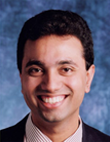 Prabhas Moghe is a Distinguished Professor of Biomedical Engineering of Chemical and Biochemical Engineering at Rutgers University. Dr. Moghe received his Ph.D. in Chemical Engineering from the University of Minnesota in 1993, and trained on a postdoctoral fellowship in Bioengineering at Harvard Medical School from 1993 to 1995. He joined the Rutgers faculty in 1995 where he has held several research leadership roles including Vice-Chair of Biomedical Engineering, PI and Director on the NSF-sponsored IGERT program at Rutgers on Integratively Engineered Biointerfaces (2003-) and Integrated Science & Engineering of Stem Cells (2008-13); PI/Director of a Nanoscale Interdisciplinary Research Team (NIRT) (2006-2012); Director of Rutgers-UMDNJ Joint Graduate Program in Biomedical Engineering (2007-2010); CORE PI for NIH-sponsored Integrated Research Center on Polymeric Biomaterials (2003-2018); and School of Engineering Diversity Champion for the NE-AGEP (2005-). He was appointed as graduate faculty member of the Graduate Program in Cell and Developmental Biology (Molecular Biosciences) at Rutgers in 1998. Since 2008, Dr. Moghe has been Adjunct Professor of Surgery, Division of Bioengineering, Robert Wood Johnson Medical School.
Prabhas Moghe is a Distinguished Professor of Biomedical Engineering of Chemical and Biochemical Engineering at Rutgers University. Dr. Moghe received his Ph.D. in Chemical Engineering from the University of Minnesota in 1993, and trained on a postdoctoral fellowship in Bioengineering at Harvard Medical School from 1993 to 1995. He joined the Rutgers faculty in 1995 where he has held several research leadership roles including Vice-Chair of Biomedical Engineering, PI and Director on the NSF-sponsored IGERT program at Rutgers on Integratively Engineered Biointerfaces (2003-) and Integrated Science & Engineering of Stem Cells (2008-13); PI/Director of a Nanoscale Interdisciplinary Research Team (NIRT) (2006-2012); Director of Rutgers-UMDNJ Joint Graduate Program in Biomedical Engineering (2007-2010); CORE PI for NIH-sponsored Integrated Research Center on Polymeric Biomaterials (2003-2018); and School of Engineering Diversity Champion for the NE-AGEP (2005-). He was appointed as graduate faculty member of the Graduate Program in Cell and Developmental Biology (Molecular Biosciences) at Rutgers in 1998. Since 2008, Dr. Moghe has been Adjunct Professor of Surgery, Division of Bioengineering, Robert Wood Johnson Medical School.
 Dipanjan Nag is the CEO and President of Prediqtus, LLC, a pre-eminent patent advisory and commercialization advisory service. He was previously the Executive Director, Office of Technology Commercialization at Rutgers University. Dr. Dipanjan Nag was a Vice President at ICAP Ocean Tomo an intellectual property transaction firm, a subsidiary of ICAP Plc. He concentrated on private sale of biotechnology and life sciences technology areas at ICAP Ocean Tomo. Before that he was a Director at Ocean Tomo, an intellectual property merchant banc, responsible for private sale, patent auctions and valuation of intellectual property assets. Dipanjan also brings with him a wealth of academic technology transfer experience. He was the Director of Operations in the Office of Technology Development at the University of Nebraska-Lincoln (UNL) prior to joining Ocean Tomo. Dipanjan was responsible for successfully licensing numerous technologies and several spin out companies from the University including the major licensing deal with The Monsanto Company for a biotechnology invention.
Dipanjan Nag is the CEO and President of Prediqtus, LLC, a pre-eminent patent advisory and commercialization advisory service. He was previously the Executive Director, Office of Technology Commercialization at Rutgers University. Dr. Dipanjan Nag was a Vice President at ICAP Ocean Tomo an intellectual property transaction firm, a subsidiary of ICAP Plc. He concentrated on private sale of biotechnology and life sciences technology areas at ICAP Ocean Tomo. Before that he was a Director at Ocean Tomo, an intellectual property merchant banc, responsible for private sale, patent auctions and valuation of intellectual property assets. Dipanjan also brings with him a wealth of academic technology transfer experience. He was the Director of Operations in the Office of Technology Development at the University of Nebraska-Lincoln (UNL) prior to joining Ocean Tomo. Dipanjan was responsible for successfully licensing numerous technologies and several spin out companies from the University including the major licensing deal with The Monsanto Company for a biotechnology invention.
 Judith E. O'Grady is the Corporate Vice President of Global Regulatory Affairs for Integra LifeSciences Corporation. Ms. O'Grady has worked in the areas of medical devices and collagen technology for over 30 years. During her career she has held positions with Colla-Tec, Inc. a Marion Merrell Dow Company, Surgikos, a Johnson & Johnson company, and was on the faculty of Boston University College of Nursing and Medical School. Ms. O'Grady led the team that obtained approval from the Food and Drug Administration (FDA) for INTEGRA® Dermal Regeneration Template, the first skin regenerative product approved by the FDA, DuraGen® Dural Graft Matrix, DuraGen Plus® Dural Regeneration Matrices, and NeuraGen® Nerve Guide, as well as over 500 FDA and international submissions and approvals. She has been an integral part of the regulatory due diligence process on many of Integra’s acquisitions, is a published author, and is listed on the patent for the DuraGen® Dural Graft Matrix . Ms. O’Grady has presented both nationally and internationally on regulatory and compliance issues. She received her B.S. degree from Marquette University and M.S.N. in Nursing from Boston University and has Regulatory Affairs Certification.
Judith E. O'Grady is the Corporate Vice President of Global Regulatory Affairs for Integra LifeSciences Corporation. Ms. O'Grady has worked in the areas of medical devices and collagen technology for over 30 years. During her career she has held positions with Colla-Tec, Inc. a Marion Merrell Dow Company, Surgikos, a Johnson & Johnson company, and was on the faculty of Boston University College of Nursing and Medical School. Ms. O'Grady led the team that obtained approval from the Food and Drug Administration (FDA) for INTEGRA® Dermal Regeneration Template, the first skin regenerative product approved by the FDA, DuraGen® Dural Graft Matrix, DuraGen Plus® Dural Regeneration Matrices, and NeuraGen® Nerve Guide, as well as over 500 FDA and international submissions and approvals. She has been an integral part of the regulatory due diligence process on many of Integra’s acquisitions, is a published author, and is listed on the patent for the DuraGen® Dural Graft Matrix . Ms. O’Grady has presented both nationally and internationally on regulatory and compliance issues. She received her B.S. degree from Marquette University and M.S.N. in Nursing from Boston University and has Regulatory Affairs Certification.
 Jean E. Schwarzbauer, Ph.D is Professor and Associate Chair of Molecular Biology at Princeton University. She received her Ph.D. from the University of Wisconsin and was a post-doctoral fellow at MIT before joining the Princeton University faculty. She has a long record of service including ASMB President, ASCB Secretary, editor of major cell biology journals, and membership on many advisory boards and grant review panels. Dr. Schwarzbauer has organized conferences in cell and matrix biology and bioengineering. At Princeton, she teaches cell biology and conducts NIH-funded research in tissue repair and regeneration, cancer, and stem cell biology.
Jean E. Schwarzbauer, Ph.D is Professor and Associate Chair of Molecular Biology at Princeton University. She received her Ph.D. from the University of Wisconsin and was a post-doctoral fellow at MIT before joining the Princeton University faculty. She has a long record of service including ASMB President, ASCB Secretary, editor of major cell biology journals, and membership on many advisory boards and grant review panels. Dr. Schwarzbauer has organized conferences in cell and matrix biology and bioengineering. At Princeton, she teaches cell biology and conducts NIH-funded research in tissue repair and regeneration, cancer, and stem cell biology.
 Mrinal Shah is a Senior Engineer in the Process Sciences group within the Research and Technology division of LifeCell Corporation, Bridgewater, NJ. His primary focus and expertise lies in process design, scale-up, validation and technology transfer for tissue and medical device products. His research experience and interest spans tissue regenerative medication and parenteral and ophthalmic product development. At LifeCell, Dr. Shah currently serves as lead engineer for projects requiring freeze drying of intact tissue and tissue scaffold products. Dr. Shah has been an invited speaker at both national and international conferences to share his experience and expertise in the field of tissue processing and characterization.
Mrinal Shah is a Senior Engineer in the Process Sciences group within the Research and Technology division of LifeCell Corporation, Bridgewater, NJ. His primary focus and expertise lies in process design, scale-up, validation and technology transfer for tissue and medical device products. His research experience and interest spans tissue regenerative medication and parenteral and ophthalmic product development. At LifeCell, Dr. Shah currently serves as lead engineer for projects requiring freeze drying of intact tissue and tissue scaffold products. Dr. Shah has been an invited speaker at both national and international conferences to share his experience and expertise in the field of tissue processing and characterization.
 Robert Stockman is the co-founder, Chairman and CEO of REVA Medical.Founded in 1998, REVA Medical, Inc. ("REVA" or the "Company") is dedicated to developing minimally invasive medical devices such as the development of drug-eluting bioresorbable coronary scaffolds for the treatment of cardiovascular disease, the leading cause of death worldwide. Prior to founding REVA, Mr. Stockman previously served on the board of ZELTIQ Aesthetics, Inc., a medical technology company listed on NASDAQ, from July 2010 until April 2012. Mr. Stockman has also been the President and Chief Executive Officer of Group Outcome LLC, a U.S.-based merchant banking firm that deploys its capital and that of its financial partners in private equity and venture capital investments in medical technology companies. He also co-founded Centrimed, Inc., an internet-based software company, that was acquired by the Global Healthcare Exchange, LLC, and led the buyouts of Ioptex, an intraocular lens manufacturer, and two Johnson & Johnson divestitures, “A” Company Orthodontics, Inc. and Critikon Company, LLC, each of which was subsequently acquired. Prior to Group Outcome LLC, Mr. Stockman spent 18 years with Johnston Associates, Inc. and Narragansett Capital Corporation, where he focused on venture capital investments and merger advisory work in health care. Mr. Stockman holds a Bachelor’s Degree from Harvard College and an MBA from The Tuck School at Dartmouth College, where he serves on Tuck’s Board of Overseers.
Robert Stockman is the co-founder, Chairman and CEO of REVA Medical.Founded in 1998, REVA Medical, Inc. ("REVA" or the "Company") is dedicated to developing minimally invasive medical devices such as the development of drug-eluting bioresorbable coronary scaffolds for the treatment of cardiovascular disease, the leading cause of death worldwide. Prior to founding REVA, Mr. Stockman previously served on the board of ZELTIQ Aesthetics, Inc., a medical technology company listed on NASDAQ, from July 2010 until April 2012. Mr. Stockman has also been the President and Chief Executive Officer of Group Outcome LLC, a U.S.-based merchant banking firm that deploys its capital and that of its financial partners in private equity and venture capital investments in medical technology companies. He also co-founded Centrimed, Inc., an internet-based software company, that was acquired by the Global Healthcare Exchange, LLC, and led the buyouts of Ioptex, an intraocular lens manufacturer, and two Johnson & Johnson divestitures, “A” Company Orthodontics, Inc. and Critikon Company, LLC, each of which was subsequently acquired. Prior to Group Outcome LLC, Mr. Stockman spent 18 years with Johnston Associates, Inc. and Narragansett Capital Corporation, where he focused on venture capital investments and merger advisory work in health care. Mr. Stockman holds a Bachelor’s Degree from Harvard College and an MBA from The Tuck School at Dartmouth College, where he serves on Tuck’s Board of Overseers.
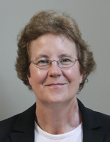 Cathryn Sundback , Sc.D. is an Assistant Professor at Harvard Medical School, Director of the Laboratory for Tissue Engineering and Organ Fabrication at the Massachusetts General Hospital, and the Director of the Biomaterials Core within the Center for Regenerative Medicine at the Massachusetts General Hospital. A biomaterialist by training, Dr. Sundback has considerable expertise in the biocompatibility of synthetic and natural biomaterials. Her research focuses on the application of these biomaterials for tissue engineering of facial and limb tissues, particularly peripheral nerve, skeletal muscle, cartilage, and bone. She is currently developing engineered skeletal muscle and cartilage tissues as clinically translatable models and as in vitro models for drug discovery.
Cathryn Sundback , Sc.D. is an Assistant Professor at Harvard Medical School, Director of the Laboratory for Tissue Engineering and Organ Fabrication at the Massachusetts General Hospital, and the Director of the Biomaterials Core within the Center for Regenerative Medicine at the Massachusetts General Hospital. A biomaterialist by training, Dr. Sundback has considerable expertise in the biocompatibility of synthetic and natural biomaterials. Her research focuses on the application of these biomaterials for tissue engineering of facial and limb tissues, particularly peripheral nerve, skeletal muscle, cartilage, and bone. She is currently developing engineered skeletal muscle and cartilage tissues as clinically translatable models and as in vitro models for drug discovery.
 Dr. William J. (Bill) Welsh holds the Norman H. Edelman Endowed Professorship in Bioinformatics in the Department of Pharmacology at the Robert Wood Johnson Medical School (RWJMS), Rutgers University in Piscataway NJ. Concurrently, he serves as Director of the Division of Cheminformatics in the Biomedical Informatics Shared Resource at the Rutgers-Cancer Institute of New Jersey (R-CINJ). Previously Dr. Welsh was the Founding Director and Principal Investigator of the EPA-supported Environmental Bioinformatics and Computational Toxicology Center. He also previously served as Founding Director and Principal Investigator of the Informatics Institute at the University of Medicine & Dentistry of New Jersey (UMDNJ, now Rutgers). He is a member of various centers and institutes of excellence at Rutgers University, including the Cancer Institute of New Jersey, the New Jersey Center for Biomaterials, the College of Pharmacy, and the Environmental & Occupational Health Sciences Institute (EOHSI).
Dr. William J. (Bill) Welsh holds the Norman H. Edelman Endowed Professorship in Bioinformatics in the Department of Pharmacology at the Robert Wood Johnson Medical School (RWJMS), Rutgers University in Piscataway NJ. Concurrently, he serves as Director of the Division of Cheminformatics in the Biomedical Informatics Shared Resource at the Rutgers-Cancer Institute of New Jersey (R-CINJ). Previously Dr. Welsh was the Founding Director and Principal Investigator of the EPA-supported Environmental Bioinformatics and Computational Toxicology Center. He also previously served as Founding Director and Principal Investigator of the Informatics Institute at the University of Medicine & Dentistry of New Jersey (UMDNJ, now Rutgers). He is a member of various centers and institutes of excellence at Rutgers University, including the Cancer Institute of New Jersey, the New Jersey Center for Biomaterials, the College of Pharmacy, and the Environmental & Occupational Health Sciences Institute (EOHSI).
 Pamela C. Yelick, Ph.D. is a tenured Full Professor in the Department of Orthodontics, and Director of the Division of Craniofacial and Molecular Genetics at Tufts University. Yelick Lab grant support from NIH/NIDCR, NIH/NIAMS, AFIRM/DoD and Osteo Sciences Foundation is being used to study mineralized tissue development, disease and regeneration. Dr. Yelick is internationally recognized as a leader in dental tissue engineering and craniofacial development. Current efforts to bioengineer coordinated bone and tooth constructs are anticipated to result in improved methods for functional craniofacial reconstructions.
Pamela C. Yelick, Ph.D. is a tenured Full Professor in the Department of Orthodontics, and Director of the Division of Craniofacial and Molecular Genetics at Tufts University. Yelick Lab grant support from NIH/NIDCR, NIH/NIAMS, AFIRM/DoD and Osteo Sciences Foundation is being used to study mineralized tissue development, disease and regeneration. Dr. Yelick is internationally recognized as a leader in dental tissue engineering and craniofacial development. Current efforts to bioengineer coordinated bone and tooth constructs are anticipated to result in improved methods for functional craniofacial reconstructions.